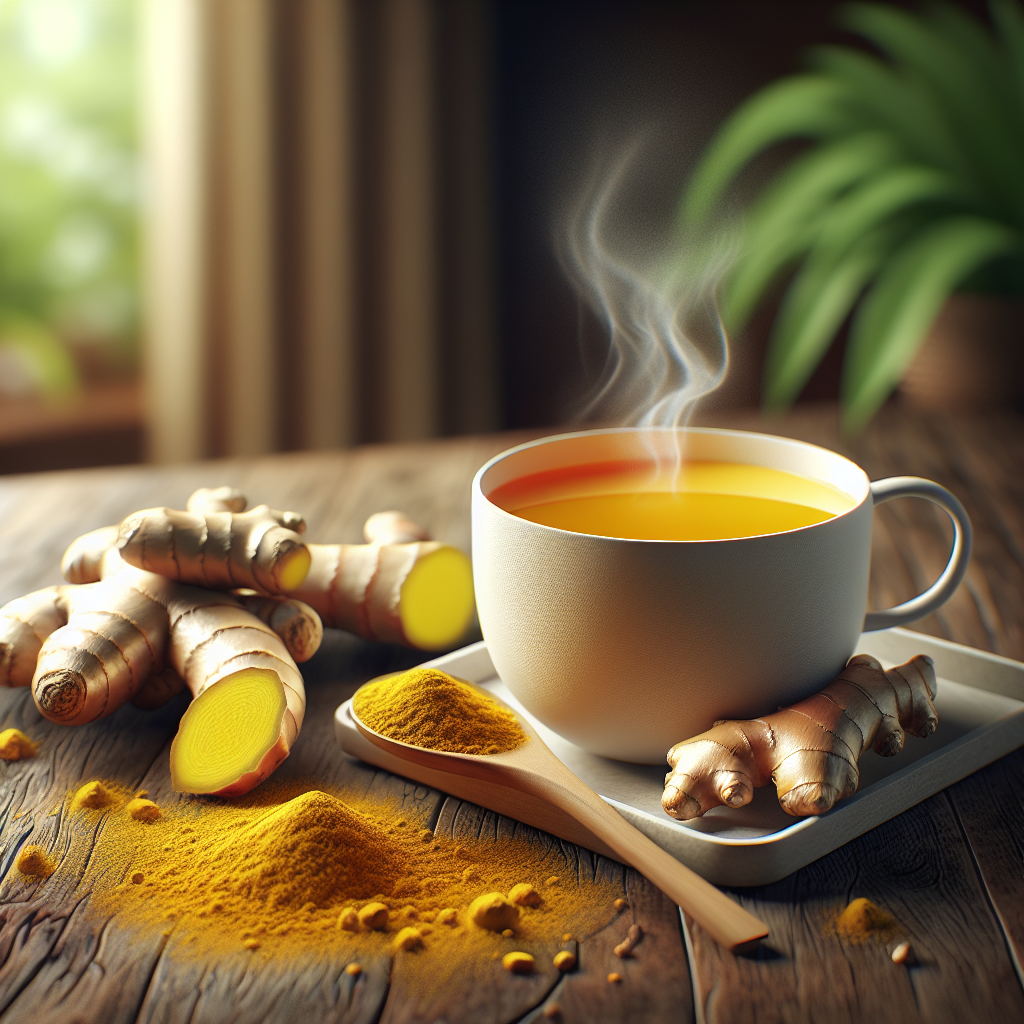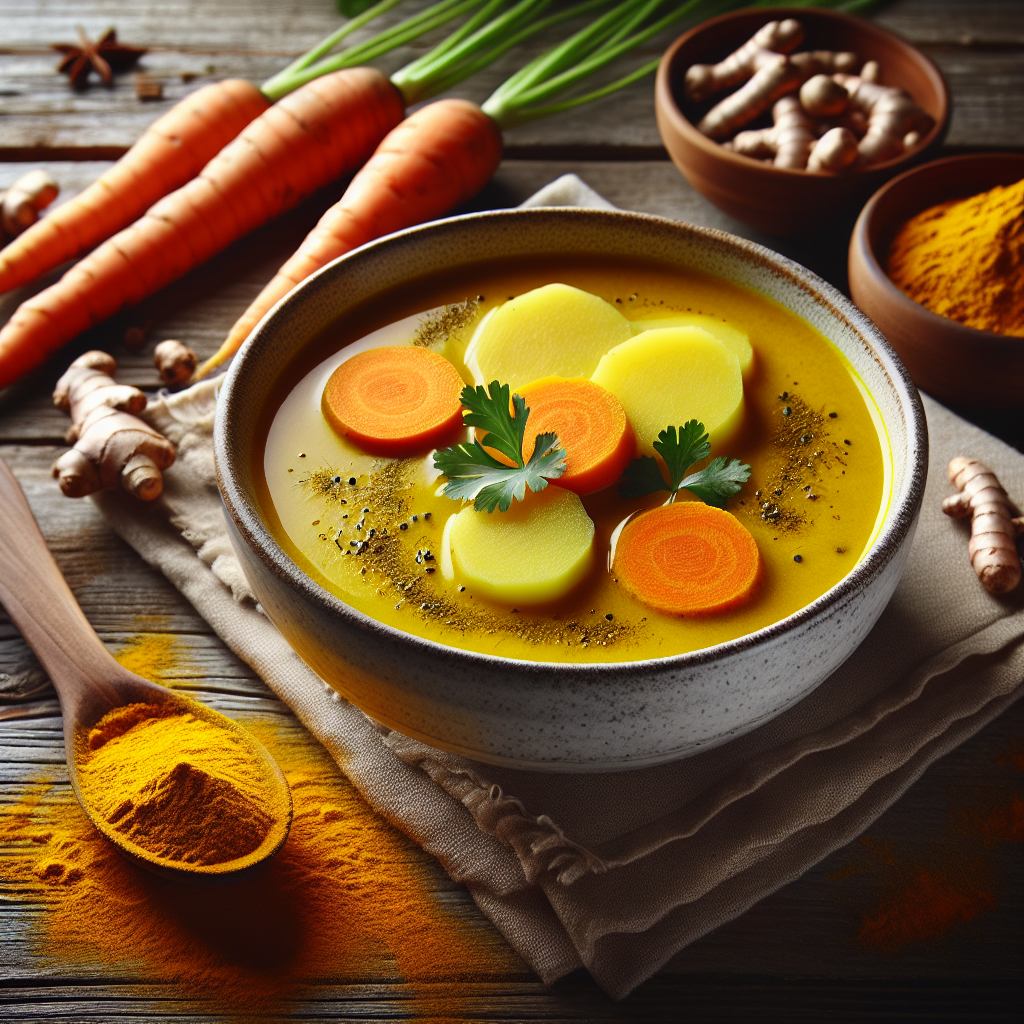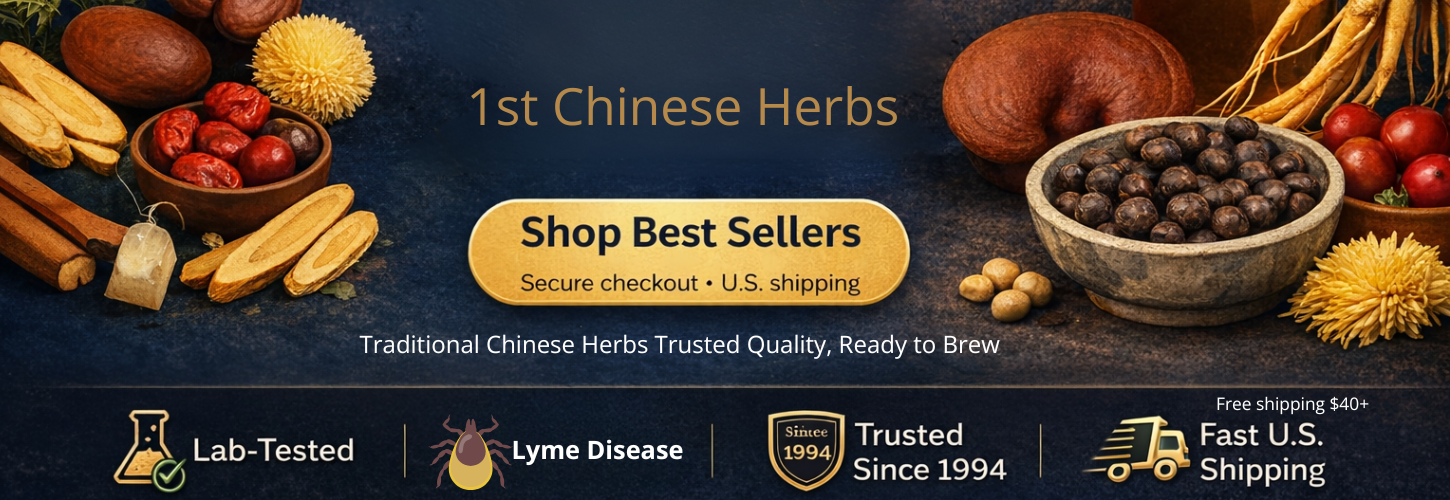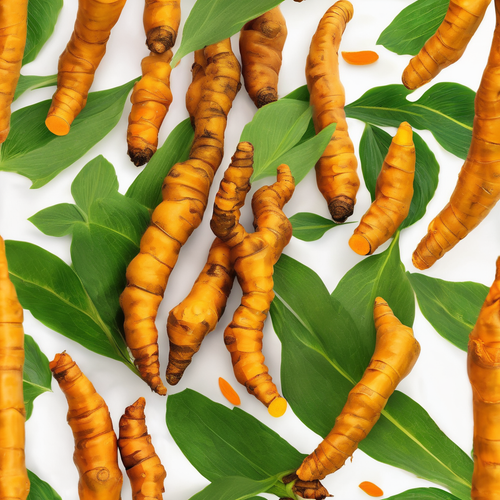Turmeric: Ancient Wisdom Meets Modern Science
Posted by Education Team @1st Chinese Herbs on Sep 29th 2025
Turmeric: Ancient Golden Root With Modern Science to Back It Up
 Turmeric (Curcuma longa) is a golden root long used in Traditional Chinese Medicine (TCM) and Ayurveda to support digestion, joint comfort, and overall balance. Its active compound, curcumin, helps regulate inflammation, provides antioxidant protection, and promotes smooth Qi and blood flow. Best taken daily with food, black pepper, or healthy fat for absorption.
Turmeric (Curcuma longa) is a golden root long used in Traditional Chinese Medicine (TCM) and Ayurveda to support digestion, joint comfort, and overall balance. Its active compound, curcumin, helps regulate inflammation, provides antioxidant protection, and promotes smooth Qi and blood flow. Best taken daily with food, black pepper, or healthy fat for absorption.
Quick Facts On Cucuma longa - Turmeric
| Category | Details |
|---|---|
| Botanical Name | Curcuma longa |
| TCM Category | Moves Qi & Invigorates Blood |
| Meridians Entered | Spleen, Liver |
| Taste & Nature | Bitter, Pungent, Warm |
| Key Compounds | Curcuminoids (curcumin), essential oils |
| Best Combined With | Black pepper (piperine), healthy fat |
| Common Uses | Joint support, digestion, antioxidant balance |
Why Turmeric Is So Beneficial
Turmeric is not just a spice—it’s a therapeutic herb backed by centuries of tradition and thousands of modern studies.
-
Healthy Inflammatory Response – Curcumin modulates pathways like NF-κB, which play a role in chronic inflammation (PubMed PMID: 17569205).
-
Potent Antioxidant – It both scavenges free radicals and boosts the body’s own antioxidant
enzymes (PubMed PMID: 15207367). -
Digestive Support – Increases bile flow, helping the body digest fats and relieve sluggishness.
-
Joint & Muscle Wellness – Research shows benefits for stiffness and comfort after activity (PubMed PMID: 20462349).
How Turmeric Works
-
Modern Science:
Curcumin interacts with cytokines, enzymes, and transcription factors, reducing oxidative stress and modulating the inflammatory cascade. -
In Digestion:
Promotes bile secretion and smooth digestive flow. -
In TCM Theory:
Known as Jiang Huang, turmeric is a blood-activating and Qi-moving herb that clears blockages and harmonizes circulation. It is especially effective where pain or stagnation exists.
Who Should Take Turmeric?
Good Candidates:
-
Individuals with occasional joint or muscle stiffness
-
Those seeking antioxidant and liver support
-
People with sluggish digestion or bloating after meals
-
Those under stress showing signs of Liver Qi stagnation (frustration, irritability, tension)
Use With Caution:
-
Pregnant women (blood-moving herbs are restricted)
-
People on anticoagulants or blood-thinning medications
-
Anyone with bile duct obstruction or gallstones
When to Take Turmeric
-
For Digestion: Take just before meals.
-
For General Health: Once daily, with food.
-
For Joint & Muscle Recovery: After activity or exercise.
-
Best Absorption: Pair with black pepper and a fat source.
 How to Take Turmeric
How to Take Turmeric
-
Powder – Add 2–3g daily to teas, curries, or smoothies.
-
Capsules/Extracts – Standardized curcumin (500–1,000mg/day).
-
Golden Milk – Simmer with milk (or plant milk), cinnamon, ginger, and pepper.
-
Teas & Decoctions – Combine with ginger for synergistic effect.
Pro Tip: Piperine in black pepper enhances curcumin absorption by up to 2000% (PubMed PMID: 9619120).
Turmeric in TCM Perspective
-
Actions: Moves blood, unblocks channels, promotes Qi circulation, eases pain.
-
Meridians: Spleen and Liver.
-
Why It Matters: Stagnation leads to pain and imbalance. Turmeric “moves what is stuck,” benefiting both body and mind.
Comparisons: Turmeric vs. Curcumin vs. Golden Milk
| Form | Pros | Best For |
|---|---|---|
| Whole Turmeric Powder | Full-spectrum compounds, culinary use | Daily cooking, teas |
| Curcumin Extract | Concentrated, standardized doses | Clinical-level support |
| Golden Milk | Soothing, absorbed well with fat + pepper | Evening ritual, digestion + relaxation |
How Does Turmeric Compare To Other Herbs?
| Herb | TCM Category & Meridians | Key Actions | Best For | Modern Research Highlight |
|---|---|---|---|---|
| Turmeric (Jiang Huang) | Moves Qi & Blood; Spleen, Liver | Invigorates blood, unblocks channels, reduces inflammation | Joint stiffness, sluggish digestion, Qi stagnation | Curcumin modulates NF-κB, antioxidant |
| Dan Shen | Invigorates Blood; Heart, Pericardium, Liver | Promotes blood circulation, calms irritability | Cardiovascular health, menstrual disorders | Salvinorin compounds improve microcirculation |
| Yan Hu Suo | Invigorates Blood & Qi; Liver, Heart, Spleen | Moves Qi, alleviates pain | Pain management, especially abdominal and menstrual | Alkaloids comparable to mild analgesics |
| Chuan Xiong | Invigorates Blood; Liver, Gallbladder, Pericardium | Moves Qi, dispels wind, relieves headaches | Headaches, gynecological issues, trauma | Ligustilide studied for vascular health |
| Hong Hua | Invigorates Blood; Heart, Liver | Strongly disperses blood stasis | Trauma, menstrual stagnation, bruising | Flavonoids show anti-thrombotic effect |
How Turmeric Calms Inflammation: The Science Behind Its Healing Power
1. Curcumin Modulates Inflammatory Pathways
-
Curcumin downregulates NF-κB (nuclear factor kappa B), a protein complex that controls the production of inflammatory molecules such as cytokines, chemokines, and adhesion molecules.
-
By reducing NF-κB activity, curcumin lowers the release of pro-inflammatory signals that drive chronic inflammation.
2. Inhibition of COX and LOX Enzymes
-
These enzymes (cyclooxygenase and lipoxygenase) produce inflammatory mediators like prostaglandins and leukotrienes.
-
Curcumin helps inhibit their activity, decreasing the compounds responsible for pain, swelling, and redness.
3. Regulation of Cytokines
-
Turmeric reduces the expression of pro-inflammatory cytokines such as TNF-α, IL-1, and IL-6.
-
It also helps restore balance by supporting anti-inflammatory cytokines, keeping the immune system in check.
4. Antioxidant Action
-
Chronic inflammation and oxidative stress are closely linked.
-
Curcumin scavenges free radicals and boosts the body’s antioxidant defenses (enzymes like superoxide dismutase and catalase). This reduces oxidative damage that fuels inflammation.
5. Epigenetic Influence
-
Curcumin can modify gene expression linked to inflammatory responses, turning down the activity of genes that promote inflammation and turning up those that encourage balance and repair.
In summary:
Turmeric reduces inflammation by calming overactive immune responses, blocking inflammatory enzymes, lowering cytokine activity, and protecting cells from oxidative damage. This “multi-targeted” approach makes it especially powerful compared to single-action pharmaceuticals.
FAQs About Turmeric
Can I take turmeric every day?
Yes. Most people benefit from daily use, especially when combined with pepper or fat for absorption.
Is turmeric safe for kidneys and liver?
Generally safe in food and herbal doses. Always consult your healthcare provider if you have existing kidney or liver conditions.
Can turmeric interact with medications?
Yes, especially blood thinners and some diabetes medications. Always seek professional guidance.
What’s the difference between turmeric and curcumin?
Turmeric is the whole root; curcumin is its most active compound. Extracts deliver higher doses, but whole root offers a synergistic spectrum.
 Final Thoughts
Final Thoughts
Turmeric is far more than a colorful kitchen spice—it’s a time-honored herb validated by modern science and deeply rooted in Traditional Chinese Medicine. Its ability to move Qi and blood, support digestion, and regulate inflammation makes it a versatile choice for daily wellness. By choosing high-quality turmeric and using it correctly—with food, fat, or black pepper—you can unlock its full potential for long-term health.
Whether you enjoy it in golden milk, take it in capsule form, or blend it into teas and soups, turmeric remains one of the most accessible and effective herbs for whole-body balance. With centuries of tradition and PubMed-backed research behind it, turmeric stands as an evergreen ally for those seeking both natural support and modern results.
Ready to experience the benefits for yourself? Explore our bulk turmeric powders, extracts, and golden milk blends—and discover how this golden root can brighten your health, one cup at a time.
Research & References
-
Aggarwal BB, et al. “Curcumin: The Indian Solid Gold.” Adv Exp Med Biol. 2007. PMID: 17569205
-
Sharma RA, et al. “Pharmacodynamics and pharmacokinetics of curcumin.” Cancer Lett. 2005. PMID: 15207367
-
Kuptniratsaikul V, et al. “Efficacy of turmeric extract in knee osteoarthritis.” Clin Interv Aging. 2009. PMID: 20462349
-
Shoba G, et al. “Piperine enhances curcumin bioavailability.” Planta Med. 1998. PMID: 9619120
Shop This Herb
Looking to add turmeric to your daily routine? Explore:


